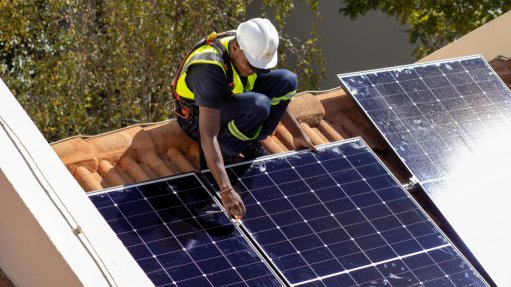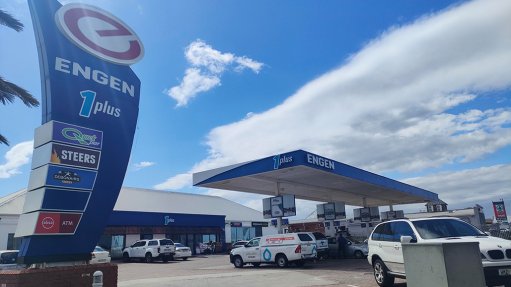European-Japanese project to cut costs of turning carbon dioxide into methanol soon to start tests
The Euro-Japanese Laurelin project, to develop innovative technologies to convert carbon dioxide (CO2) into renewable methanol, is completing the assembly of three advanced chemical reactor demonstrators, to test three different CO2 conversion technologies. The project has been running for a year, and is funded by the European Union’s (EU’s) Horizon 2020 programme and the Japan Science and Technology Agency. It involves research organisations, universities and small and medium-sized enterprises in EU member States Belgium, Germany, the Netherlands and Spain, plus Japan and the UK.
“Renewable methanol has an impressive potential to help decarbonising the transport sector,” pointed out Laurelin technical coordinator Adolfo Benedito Borrás. “It can cut CO2 emissions by up to 95%, reduce [nitrogen oxide] emissions by up to 80%, and completely eliminate [sulphur oxides] and particulate matter emissions. It is a promising technology that can play an important role in making Europe the first climate-neutral continent.”
Within the EU, for example, the transport sector accounts for more than 25% of total greenhouse-gas (GHG) emissions. Renewable methanol could supply the sector with a major source of green energy.
CO2 can already be converted into methanol, using a process known as hydrogenation (which involves creating a chemical reaction between hydrogen molecules [H2] and the CO2 molecules, producing methanol). But this process currently has severe limitations. It also consumes a lot of energy and is expensive. As CO2 is usually ‘unreactive’, hydrogenation requires the use of a catalyst.
Part of project Laurelin is the development of new catalyst systems which will cut the energy required for hydrogenation and thereby also cut the cost. The researchers are also working on three new reactor technologies which they regard as promising. These are – magnetic induction, microwave, and non-thermal plasma induction. No details of these technologies were released.
“Reducing e-methanol production costs would lead to an increase in the opportunities to use it as fuel,” highlighted Tokyo Institute Department of Chemical Science and Engineering Professor Teruoki Tago. “This would directly benefit society thanks to the reduction in [GHG] emissions and costs, creating further jobs and wealth.”
The three demonstration reactors will be fine-tuned over the next several weeks, including by increasing their operating pressures. The project teams will test more than 100 samples of new catalysts. These test results will be compared with the results obtained using conventional thermal hydrogenation. The ultimate aim is to develop a new, economically competitive and efficient means of producing methanol from CO2 on an industrial scale. The Laurelin project has another three years to run.
Comments
Press Office
Announcements
What's On
Subscribe to improve your user experience...
Option 1 (equivalent of R125 a month):
Receive a weekly copy of Creamer Media's Engineering News & Mining Weekly magazine
(print copy for those in South Africa and e-magazine for those outside of South Africa)
Receive daily email newsletters
Access to full search results
Access archive of magazine back copies
Access to Projects in Progress
Access to ONE Research Report of your choice in PDF format
Option 2 (equivalent of R375 a month):
All benefits from Option 1
PLUS
Access to Creamer Media's Research Channel Africa for ALL Research Reports, in PDF format, on various industrial and mining sectors
including Electricity; Water; Energy Transition; Hydrogen; Roads, Rail and Ports; Coal; Gold; Platinum; Battery Metals; etc.
Already a subscriber?
Forgotten your password?
Receive weekly copy of Creamer Media's Engineering News & Mining Weekly magazine (print copy for those in South Africa and e-magazine for those outside of South Africa)
➕
Recieve daily email newsletters
➕
Access to full search results
➕
Access archive of magazine back copies
➕
Access to Projects in Progress
➕
Access to ONE Research Report of your choice in PDF format
RESEARCH CHANNEL AFRICA
R4500 (equivalent of R375 a month)
SUBSCRIBEAll benefits from Option 1
➕
Access to Creamer Media's Research Channel Africa for ALL Research Reports on various industrial and mining sectors, in PDF format, including on:
Electricity
➕
Water
➕
Energy Transition
➕
Hydrogen
➕
Roads, Rail and Ports
➕
Coal
➕
Gold
➕
Platinum
➕
Battery Metals
➕
etc.
Receive all benefits from Option 1 or Option 2 delivered to numerous people at your company
➕
Multiple User names and Passwords for simultaneous log-ins
➕
Intranet integration access to all in your organisation


















